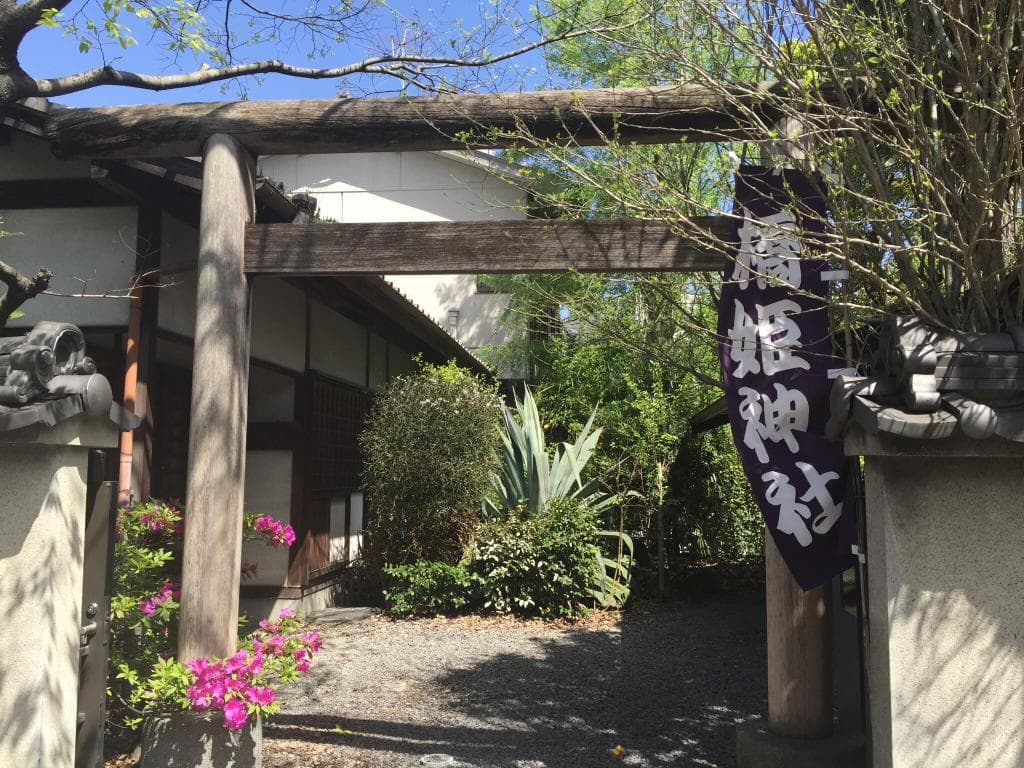
Hashihime Shrine
A hidden gem in Uji, Hashihime Shrine is famed for its legend of a deity who severs bad ties and fosters new connections.
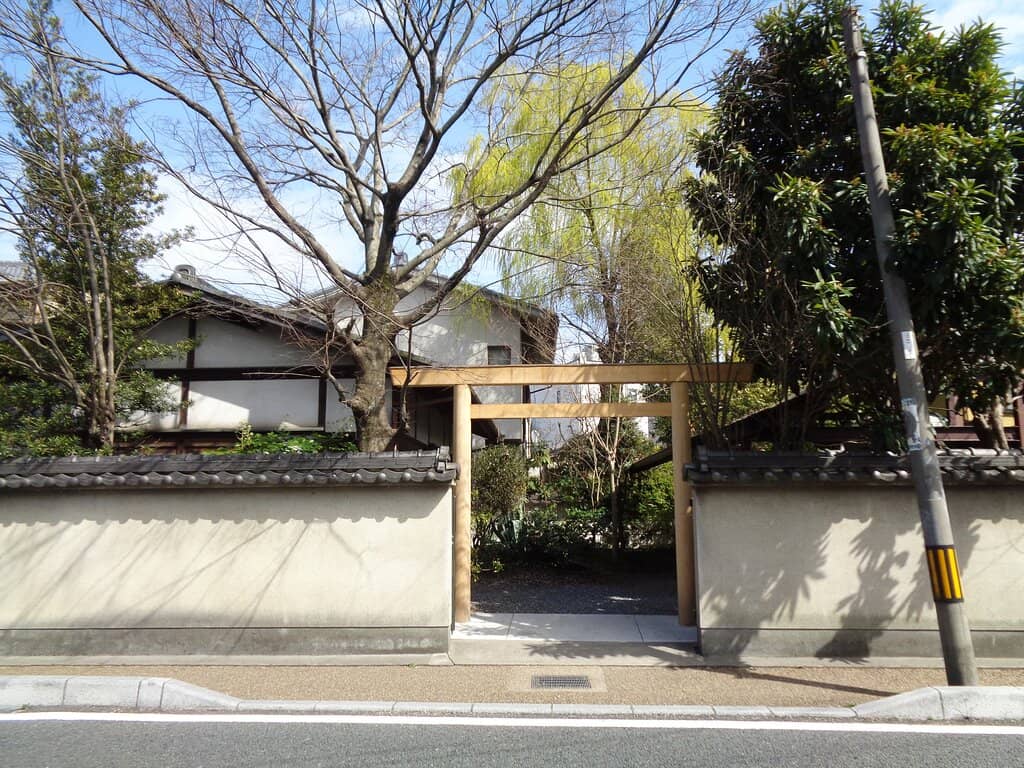
Highlights
Must-see attractions
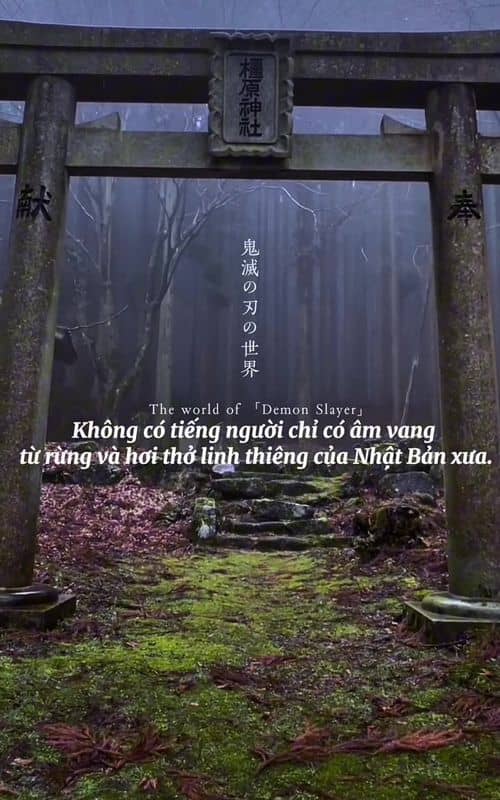
Social
From TikTok & Reddit
Best Time
Fewer crowds, peaceful atmosphere

Hashihime Shrine
Best Time
Fewer crowds, peaceful atmosphere

Highlights
Must-see attractions
A hidden gem in Uji, Hashihime Shrine is famed for its legend of a deity who severs bad ties and fosters new connections.
"This small shrine offers a unique spiritual experience, perfect for those seeking to cut ties and forge new beginnings."
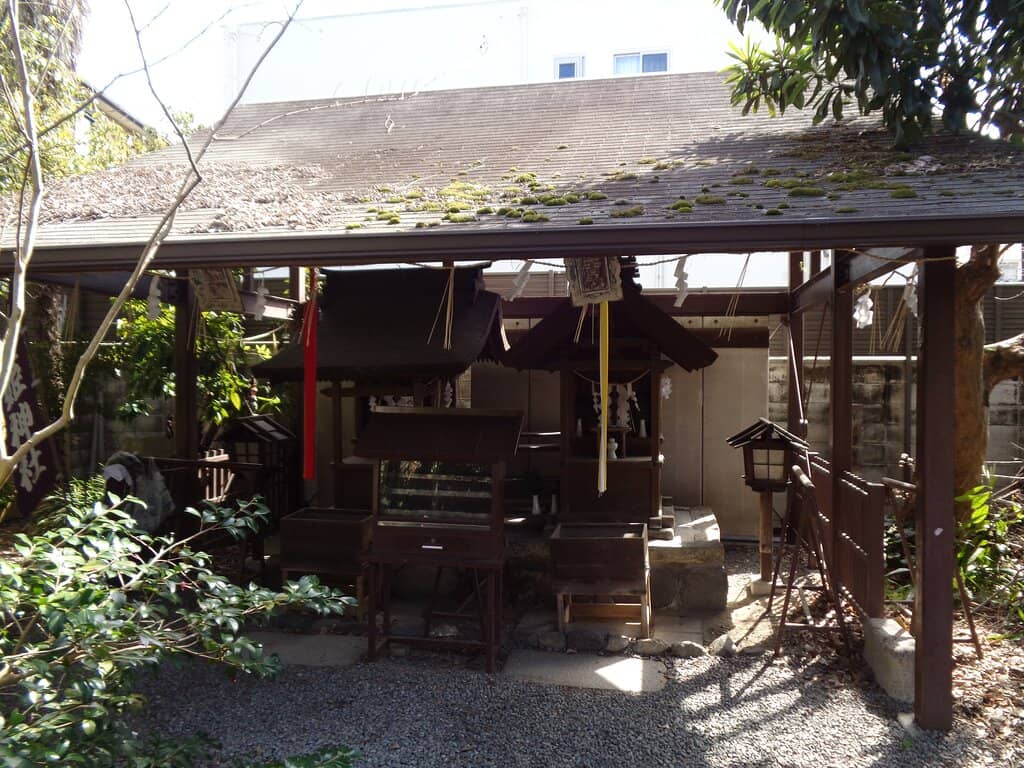
🎯 Look for the Torii Gate
Don't miss it! The shrine is hidden between houses. Look for the large torii gate to find the entrance.
👟 Easy Walk from Keihan
Keihan Uji Station is closest, just a 5-8 minute walk. JR Uji Station is a bit further. :athletic_shoe:
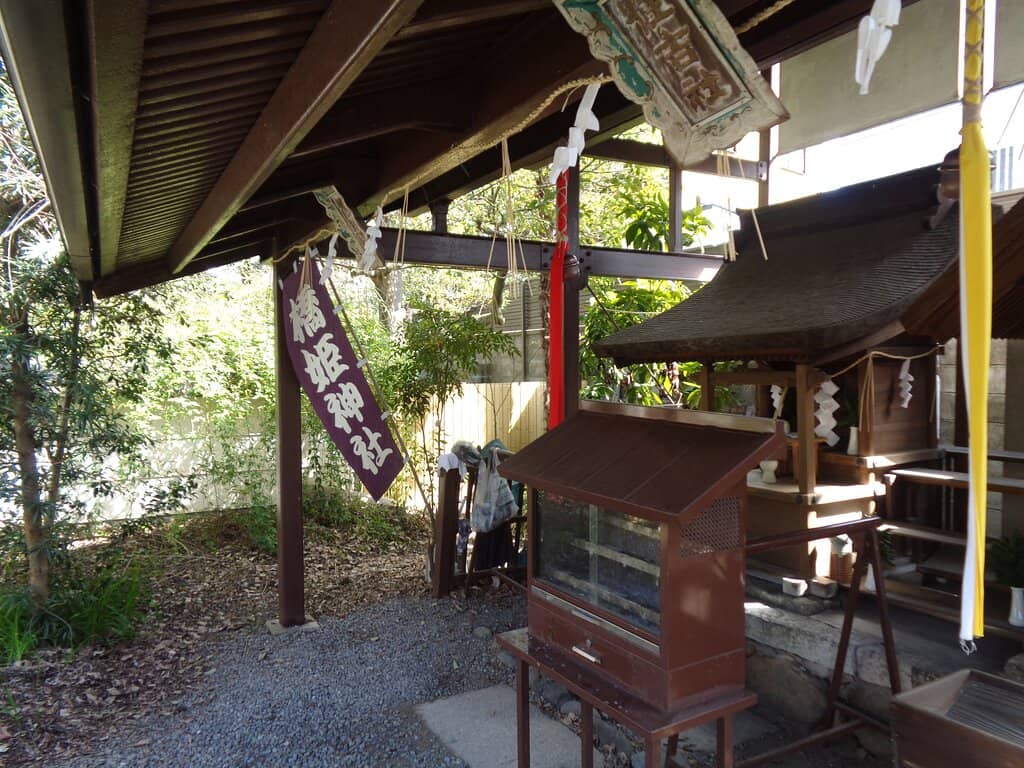
Highlights
Discover the most iconic attractions and experiences

The Torii Gate
Entrance
A striking, large torii gate marks the entrance, hinting at the shrine's hidden nature.

The Main Shrine Building
Inner grounds
A small, serene shrine offering a sense of mysterious power and ancient connection.
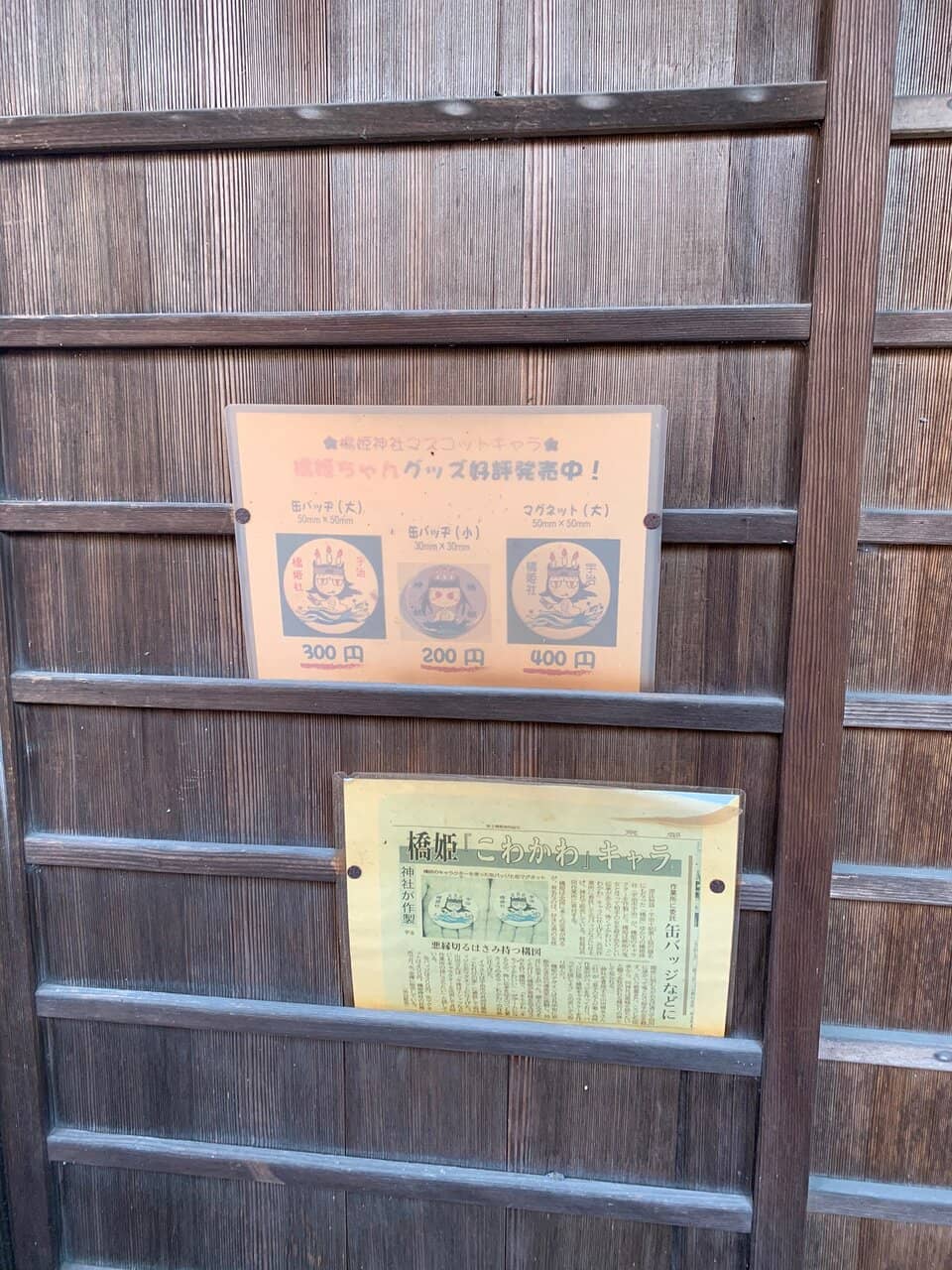
Uji Bridge Connection
Near Uji Bridge
Experience the historical link to Uji Bridge, where Hashihime was once enshrined as a guardian.
Plans like a pro.
Thinks like you
Planning Your Visit
Finding Hashihime Shrine
Understanding the Deity
Best Times
Insider Tips
from TikTok, Instagram & Reddit
🎯 Look for the Torii Gate
Don't miss it! The shrine is hidden between houses. Look for the large torii gate to find the entrance.
👟 Easy Walk from Keihan
Keihan Uji Station is closest, just a 5-8 minute walk. JR Uji Station is a bit further. :athletic_shoe:
🙏 Pray for New Ties
Worship Hashihime to sever bad relationships and forge new, positive connections. :pray:
👻 Understand the Legend
Learn about Hashihime's dual nature as a water goddess and a demon woman for a richer visit.
Tips
from all over the internet
🎯 Look for the Torii Gate
Don't miss it! The shrine is hidden between houses. Look for the large torii gate to find the entrance.
👟 Easy Walk from Keihan
Keihan Uji Station is closest, just a 5-8 minute walk. JR Uji Station is a bit further. :athletic_shoe:
🙏 Pray for New Ties
Worship Hashihime to sever bad relationships and forge new, positive connections. :pray:
👻 Understand the Legend
Learn about Hashihime's dual nature as a water goddess and a demon woman for a richer visit.
What Travellers Say
Reviews Summary
Visitors find Hashihime Shrine to be a unique and easily missed spiritual site with a fascinating legend. Its accessibility from Keihan Uji Station is a plus, though its small size means it's a brief visit. The shrine's connection to severing bad ties and forging new ones is a significant draw for many. Some note the intriguing mention of nuclear power plant distances on a shrine sign.
"If you try to walk there from JR Uji Station, there are lots of detours, but if you head straight it's about 10 to 15 minutes. From the Keihan station it's about 5 to 8 minutes.
It passes through a large torii gate along the main street and stands quietly between houses. You might easily miss it if you're not careful.
Whether it's Seoritsuhime, the god of the Uji River, or Hashihime who became a demon, there's no doubt that she is a female deity.
It's a small shrine with just a torii gate and a small shrine, but I felt like I received a mysterious power from it."
ごんぶん
"It is said that when Uji Bridge was built in the mid-7th century, he was enshrined as the guardian deity of the bridge. The deity enshrined is Seoritsuhime (synonymous with Hashihime), who is said to be a water goddess, but this goddess is not mentioned in the Kiki. Originally, there were many deities enshrined at shrines that are not mentioned in the Kiki, but over time (particularly due to the influence of state Shinto after the Meiji period), the deities enshrined have been replaced, and the origin of the shrine's founding and form of worship have become ambiguous in many cases. In that respect, the deity here has a clear history.
A sign on the shrine grounds states the shrine's location: ``75 km from Takahama Nuclear Power Plant, 74 km from Oi Nuclear Power Plant, 91 km from Mihama Nuclear Power Plant, 98 km from Tsuruga Nuclear Power Plant, 96 km from Monju Fast Breeder Reactor.'' I don't know what the intention is, but maybe it means that the water god will protect the nuclear power plant from tsunamis, or maybe it's a hint that we shouldn't build dangerous things like nuclear power plants..."
伊勢守
"There is a frightening legend about Hashihime Shrine in Kyoto. The legend of Hashihime Shrine is a shrine that enshrines Yorioritsuhime, the guardian deity of the Uji Bridge that crosses the Uji River. There are various legends about Hashihime. Hashihime has a frightening side, such as being jealous of men and women crossing the Uji Bridge and cutting off ties, but she is also worshiped as a goddess of severing ties and bad relationships.
Main contents of the Hashihime legend
⦿Seclusion at Kifune Shrine
The daughter of a certain nobleman prays to Kifune God to become a demon woman, and learns from the oracle of Kifune Shrine that she can become a demon woman by immersing herself in the Uji River.
The daughter immerses herself in the Uji River for 21 days, transforms into a demon woman, and goes on a rampage to get revenge. Hashihime, who has become a demon woman, meets Minamoto Tsuna and tries to take him away, but Minamoto Tsuna's sword cuts off her arm and she is killed in return. After rampaging as an oni woman, Hashihime was calmed down and enshrined in the middle of Uji Bridge, and later returned to her current location.
Current situation of Hashihime Shrine
⦿ God of cutting bad ties
Hashihime Shrine is now worshipped as a god for cutting bad ties and making new ties.
⦿ Worship to cut ties
At Hashihime Shrine, prayers related to various ties are held, such as prayers to cut bad ties and prayers for new ties.
⦿ Connection with Uji Bridge
Uji Bridge is deeply connected to the legend of Hashihime, and many people cross Uji Bridge while visiting Hashihime Shrine.
The legend of Hashihime Shrine is a complicated story of how she changed from the resentment of a jealous woman into an oni woman, and then was enshrined as the guardian deity of the bridge. The story is still familiar to many people today, and it is a popular spot for many worshippers as a place to pray for cutting ties and making new ties."
田村徹
What People Like
What People Dislike
Frequently Asked Questions
🚇 🗺️ Getting There
Hashihime Shrine is easily accessible. From Keihan Uji Station, it's a short 5-8 minute walk. If you're coming from JR Uji Station, it's about a 10-15 minute walk, though you might encounter more detours. Look for the large torii gate as it's easy to miss between houses.
It can be tricky! The shrine is nestled between houses and the main torii gate is the primary marker. Pay close attention as you walk along the main street from the station.
Heading straight from the main street is recommended to avoid detours. The shrine is located along Agata Street, a short walk from Uji Bridge.
Absolutely! Hashihime Shrine is a compact and quick visit, making it perfect to include in a day exploring Uji's other attractions like Byodo-in Temple or the tea shops.
Information on dedicated parking for Hashihime Shrine is limited. It's best to rely on public transport or use parking facilities available near Uji Station or Uji Bridge if you are driving.
🎫 🎫 Tickets & Entry
No, Hashihime Shrine is a public shrine and does not require an entrance ticket. You can visit freely during daylight hours.
As an outdoor shrine, Hashihime Shrine is generally accessible throughout the day. However, it's best to visit during daylight hours for safety and to fully appreciate the atmosphere.
There is no admission fee to visit Hashihime Shrine. It's a free-to-access spiritual site.
While not required, visitors often leave small offerings or donations at shrines in Japan as a sign of respect. There may be a donation box available.
Yes, Hashihime Shrine is a small site, perfect for a brief visit of 15-30 minutes to soak in its unique atmosphere and history.
🎫 ⛩️ Onsite Experience
Hashihime Shrine is famous for its connection to the legend of Hashihime, a deity who is now worshipped for severing bad ties and forging new relationships. It's also known for its historical link to Uji Bridge.
The legend tells of a woman who transformed into a demon out of jealousy, but was eventually calmed and enshrined as a guardian deity. Today, she's seen as a god of cutting bad ties and making new ones.
You'll find a prominent torii gate, a small shrine building, and a serene atmosphere. The shrine's historical significance and connection to Uji Bridge are key aspects.
While not as famous as some larger temples, it's a significant spot for those interested in Japanese folklore and spiritual sites, particularly for its unique blessings.
A sign at the shrine lists distances to various nuclear power plants. The intention is unclear, possibly suggesting the water god's protection or a commentary on dangerous constructions.
🍽️ 🍵 Food & Dining
Yes, Hashihime Shrine is located in Uji, a city renowned for its matcha. You'll find numerous tea houses and restaurants nearby, especially along the main streets and near Uji Bridge.
Uji is famous for its matcha-flavored everything! Expect matcha ice cream, parfaits, soba noodles, and traditional Japanese sweets.
Certainly. Many restaurants in Uji offer traditional Japanese cuisine, including kaiseki (multi-course meals) and local specialties.
Yes, you can find more affordable options like ramen shops, udon restaurants, and convenience stores offering bento boxes in the vicinity of Uji Station.
Popular spots include Nakamura Tokichi, Tsujiri Main Store, and Itoh Kyuemon, known for their high-quality matcha products and desserts.
📸 📸 Photography
Capture the striking torii gate, the serene shrine building, and the surrounding traditional Japanese architecture. The atmosphere itself is very photogenic.
Generally, photography is allowed at shrines in Japan, but it's always respectful to be mindful of other visitors and avoid intrusive photography, especially during prayer times.
Early morning or late afternoon can offer softer light and fewer crowds, enhancing the tranquil atmosphere for photography.
Try framing the shrine through the torii gate for a classic shot. Capturing the details of the shrine building and any surrounding nature can also yield beautiful results.
Tripod usage might be restricted in some smaller shrines to avoid obstructing pathways or disturbing visitors. It's best to check for any posted signs or be prepared to handhold your shots.
For Different Travelers
Tailored advice for your travel style
👨👩👧 Families with Kids
Given its compact size, it won't tire out younger visitors. Combine the visit with a walk across the nearby Uji Bridge, which has its own historical significance tied to the shrine. Afterwards, Uji offers plenty of family-friendly activities, including enjoying matcha ice cream or exploring other child-friendly attractions in the area.
🙏 Spiritual Seekers
The shrine's serene atmosphere, despite its urban setting, provides a peaceful environment for reflection and prayer. Its historical connection to the Uji River and Uji Bridge adds layers of spiritual depth. Consider visiting on a weekday morning for a more tranquil experience, allowing for deeper contemplation.
Deep Dives
In-depth insights and expert knowledge
The Legend of Hashihime
This demon woman, Hashihime, would reportedly target men and women crossing the Uji Bridge, causing misfortune. The legend continues with her encounter with the samurai Minamoto Tsuna, who severed her arm, leading to her demise. Despite her terrifying persona, Hashihime was eventually calmed and enshrined, first in the middle of Uji Bridge and later at her current location. This duality makes her a complex figure in Japanese folklore.
Today, Hashihime is worshipped not just for her historical role as a bridge guardian but also as a powerful deity for severing bad ties and forging new, positive relationships. Visitors often come to the shrine seeking blessings to end negative connections, whether they be relationships, habits, or misfortunes, and to open themselves up to new opportunities and connections. This unique aspect of her worship draws many seeking spiritual guidance.
Navigating Uji's Matcha Culture
When exploring Uji's matcha scene, you'll find a spectrum of experiences. From traditional tea ceremonies and matcha grinding workshops to modern cafes serving matcha-infused desserts and beverages, there's something for every palate. Popular establishments like Nakamura Tokichi, Tsujiri Main Store, and Itoh Kyuemon are frequently mentioned for their exceptional matcha products and historical significance.
It's worth noting that some of these tea shops have specific closing days, such as weekends for places like Marukyu Koyamaen and Horii Shichimeien, so it's advisable to check their operating hours in advance. Planning your route to include these culinary stops can enhance your overall Uji experience, making your visit to Hashihime Shrine part of a delightful gastronomic and cultural journey.
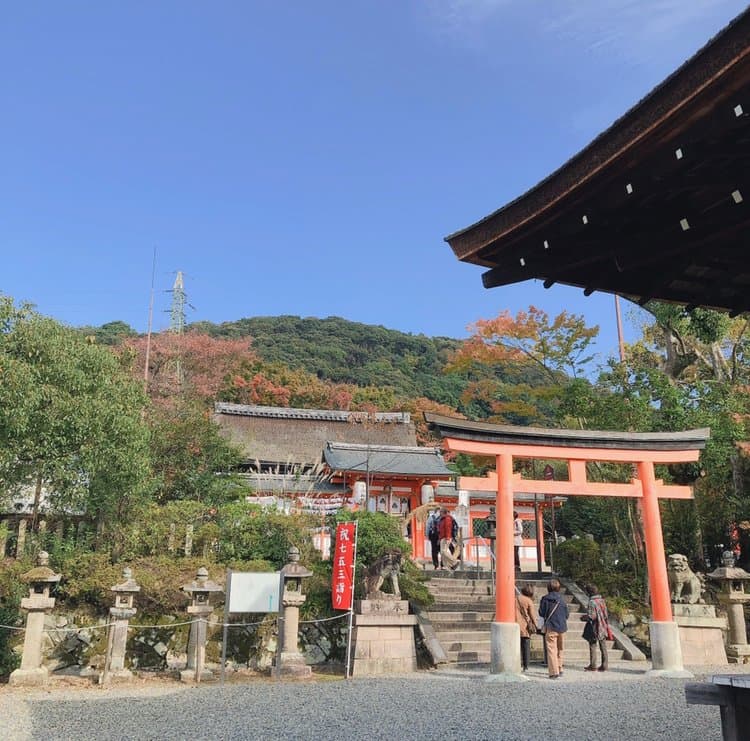
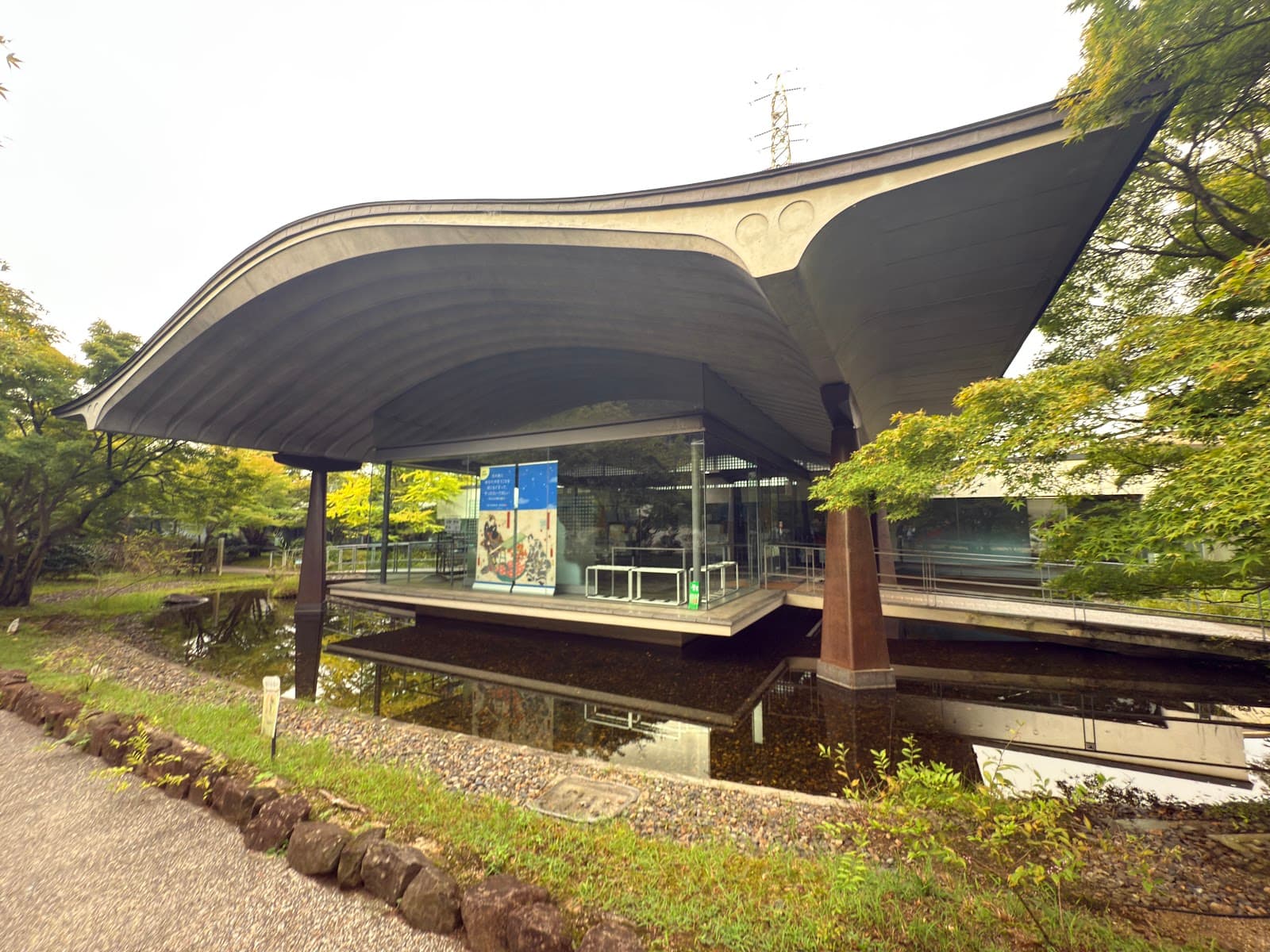
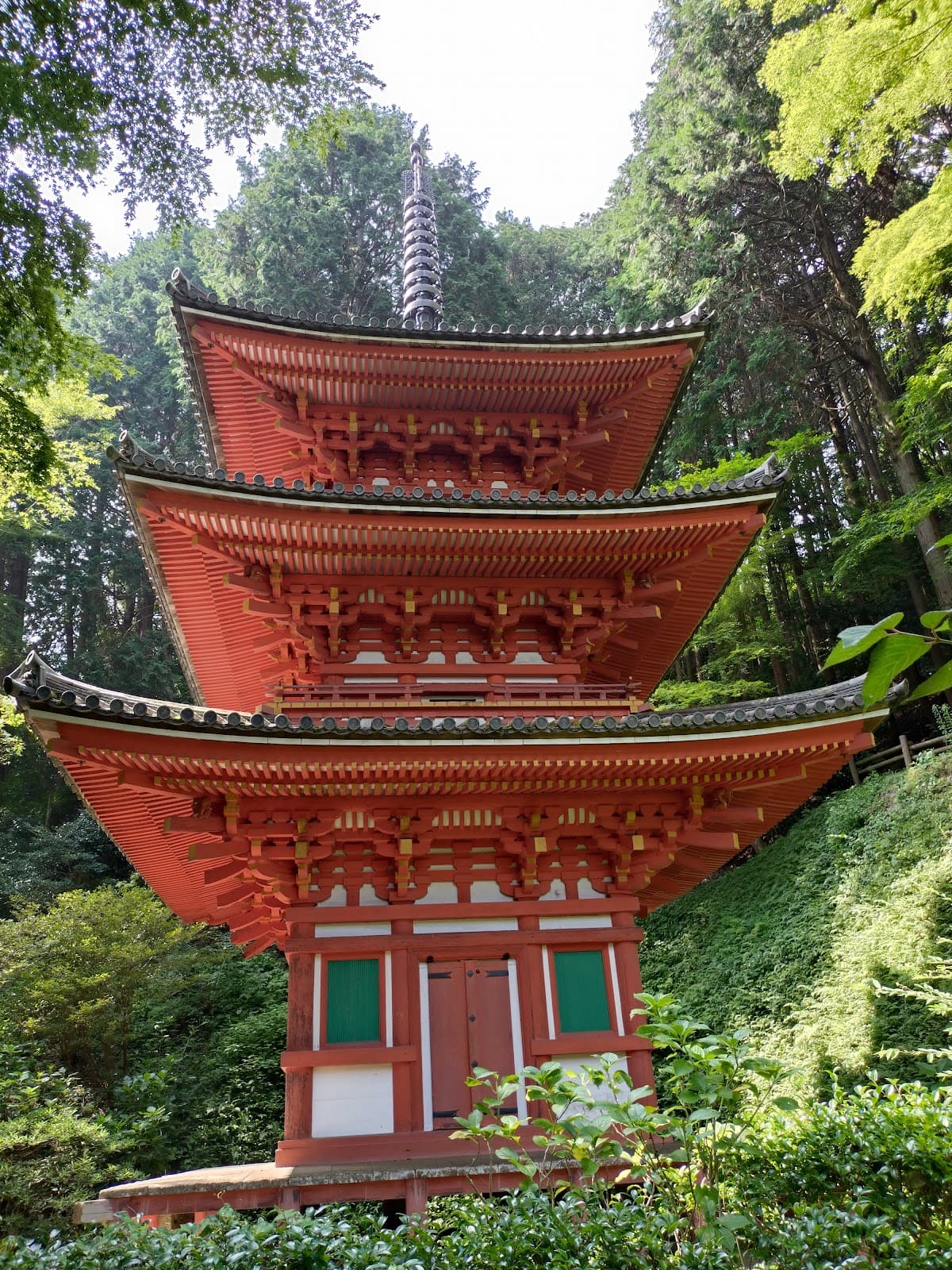
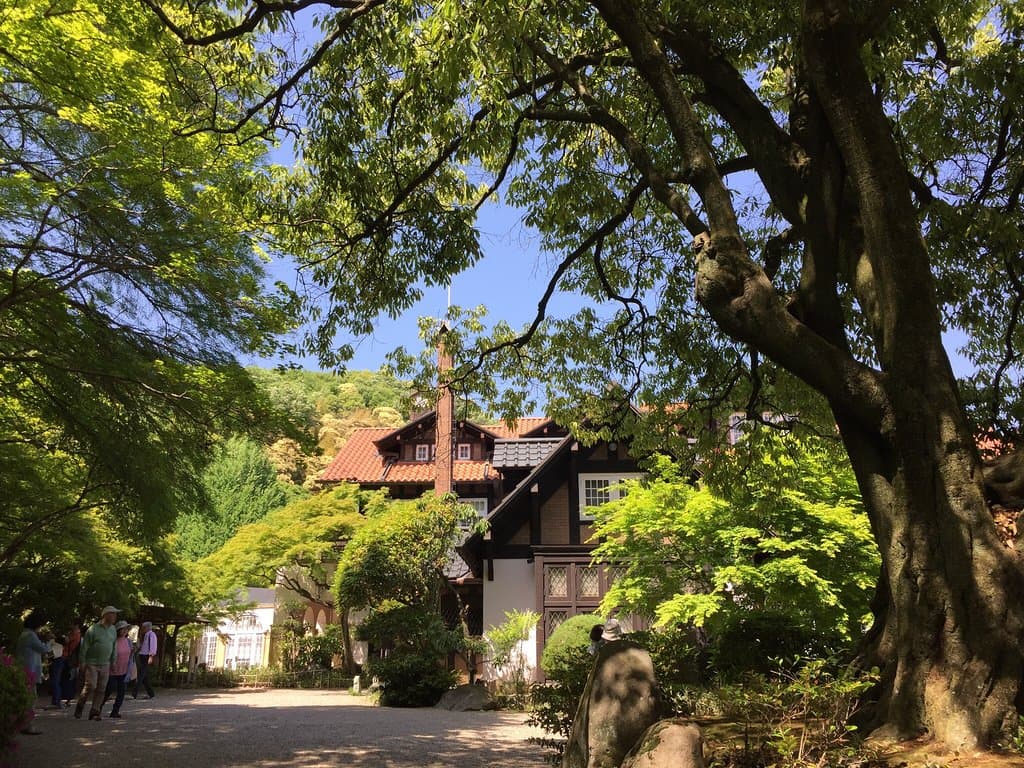
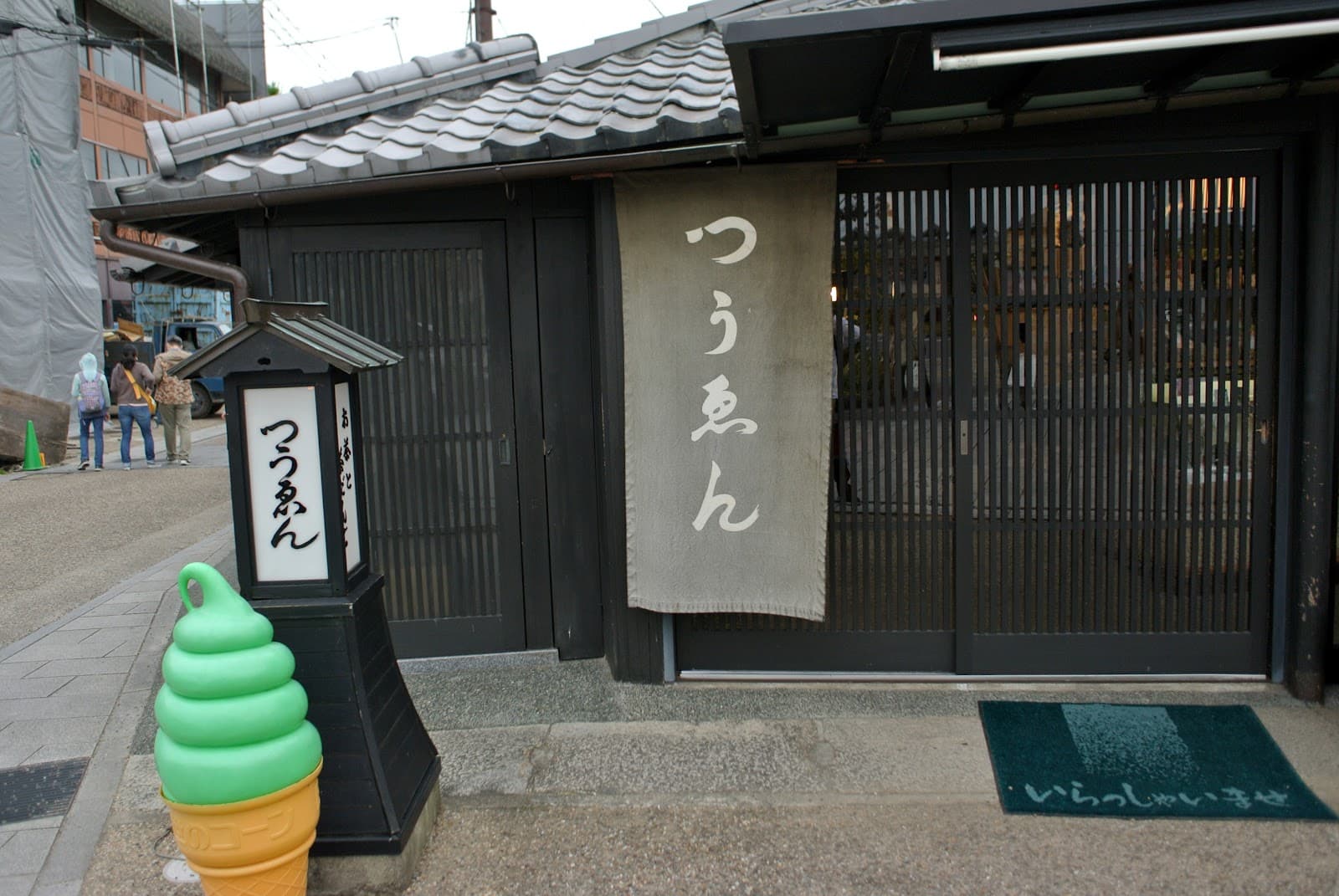
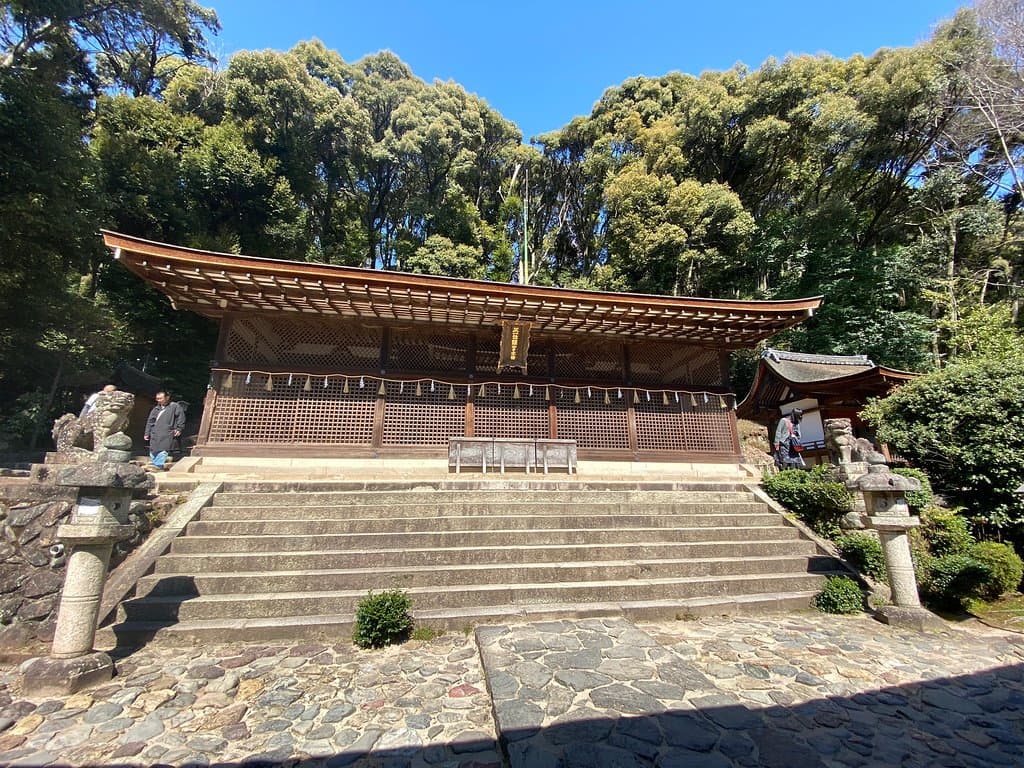
Social
from TikTok, Instagram & Reddit